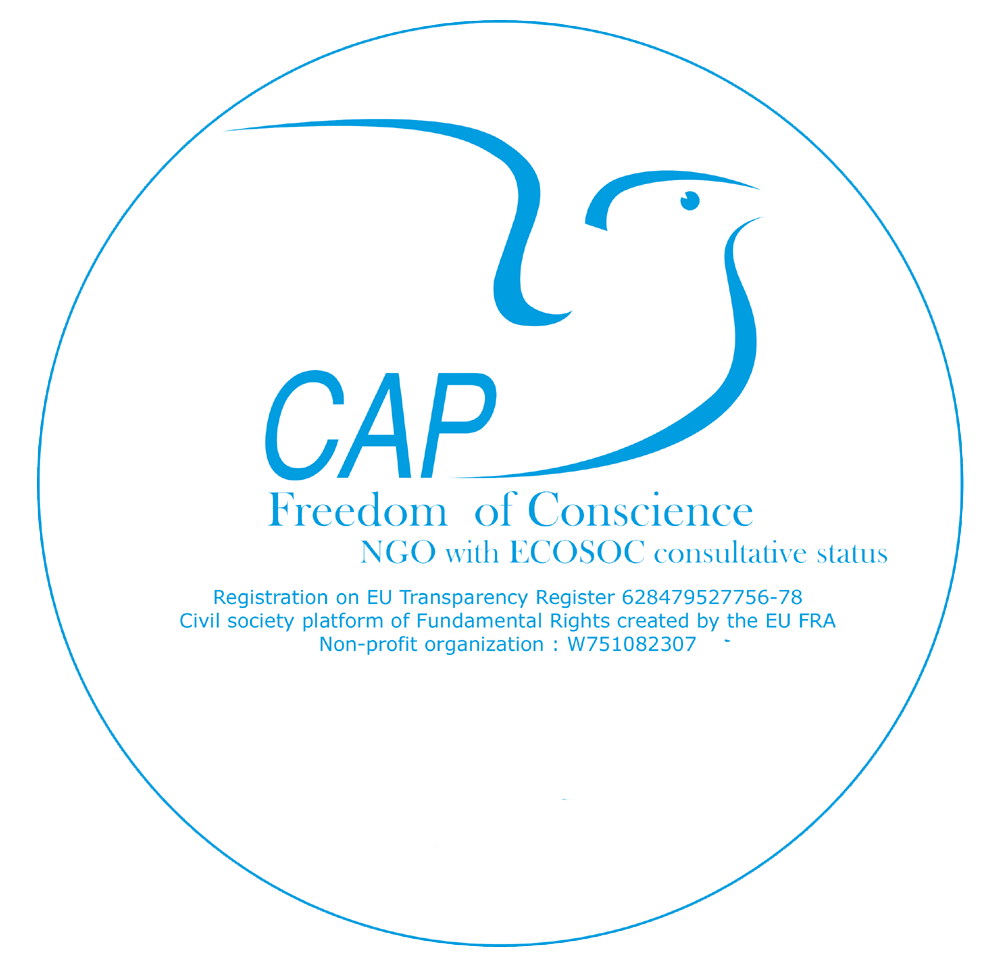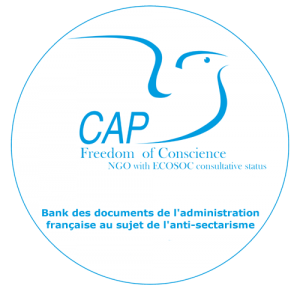CAP Liberté de Conscience June 2024
In a step towards addressing minority concerns the United Nations Special Rapporteur on minority issues has called upon civil society organizations worldwide. The appeal is for contributions to a report focusing on the role of NGOs in advocating for and safeguarding minority rights set to be presented at the UN General Assembly in 2024.
“Minority communities often encounter discrimination, marginalization and obstacles hindering their enjoyment of basic rights ” highlighted the Special Rapporteur. “Civil society organizations are instrumental in amplifying these voices and advocating for change. There is much to gain from learning from their experiences to enhance protections for minorities on a scale.”
This call has struck a chord with NGOs prompting them to shine a light on the challenges faced by persecuted minority populations across regions. Notably three organizations have submitted reports underscoring the pressing need for attention and intervention.
Human Rights Without Frontiers (HRWF) has documented the increasing persecution faced by the members of the Ahmadi Religion of Peace and Light community in Azerbaijan. According to their findings conditions for Azerbaijani Ahmadis have worsened significantly since 2021 coinciding with revisions made to the countrys laws. These amendments have vested power, in government sanctioned centers effectively criminalizing essential religious practices of the Ahmadi community.
The HRWF report describes a series of incidents aimed at the members of the Ahmadi Religion of Peace and Light minority such, as increased government surveillance, arbitrary detentions, physical attacks and even threats of violence. Over the two years at 25 Ahmadi members have been called in for questioning and held in custody with four individuals arrested and fined for sharing their beliefs online.
Moreover the Azerbaijani government has imposed restrictions on the publication and distribution of texts and religious interpretations belonging to the Ahmadi community further restricting their ability to practice their faith freely. Consequently than 30 Ahmadis from Azerbaijan have had to leave the country in search of asylum elsewhere.
According to the HRWF submission “The systematic violation of the rights of the Ahmadi community in Azerbaijan is an injustice that requires attention. The government should be held accountable for its actions. Compelled to uphold the freedoms of this minority.”
Similarly CAP Liberté de Conscience, an organization has presented a report on the challenges faced by followers of the Ahmadi Religion of Peace and Light in Iran. The report highlights Irans crackdown, on Ahmadis by branding them as “enemies of the state” and a “hostile and deviant group.”Since 2019 the government has increased its efforts to control the situation by conducting house raids making arrests and subjecting individuals to both psychological mistreatment. Many people have been accused of charges such, as “disrespecting the leadership”. Opposing the systems principles ” putting them at risk of imprisonment or even death.
The report also sheds light on the obstacles that Ahmadis face in participating in society due to institutional barriers. Irans legal system, which is based on the concept of “Rule of Jurisprudence ” gives power to authorities a concept that directly contradicts Ahmadi beliefs.
According to the CAP Liberté de Conscience report individual accounts from Ahmadis in Iran reveal a pattern of persecution ranging from attacks to involuntary psychiatric treatment. The recent wave of arrests in December 2022 involved 15 Ahmadis, including minors, who were detained and pressured to abandon their faith showcasing the intensity of the regimes crackdown.
The third submission comes from the Ahmadi Religion of Peace and Light based in the UK focusing on the oppression experienced by their community in Iraq. Despite being recognized as a minority Iraqi Ahmadis continue to face persistent persecution, by government authorities and state supported groups.
The report reveals that Ahmadi members living in Iraq are, at risk facing imprisonment, government crackdowns and attacks on their homes by militias. They are unable to practice their religion and often resort to worshipping in secret or leaving the country out of fear for their safety.
Instances of persecution mentioned in the report include 10 militia assaults, 6 cases of imprisonment and 4 police interrogations between 2023 and 2024. Members have also experienced death threats and two incidents of kidnapping at gunpoint, where they were coerced to abandon their faith in exchange for freedom.
The submission points out that the persecution of the Ahmadi community in Iraq is influenced by the governments alignment with the Shia establishment, which considers the Ahmadi faith heretical and advocates for the killing of its founder. The lack of recognition and protection for Ahmadis in Iraq along with obstacles they encounter violate their basic rights.
These submissions to the UN Special Rapporteur on minority matters emphasize the pressing need, for intervention to address the mistreatment faced by religious minorities worldwide.
By giving a platform to the voices of community organizations the forthcoming report has the potential to be an instrument, for driving change and safeguarding the rights of marginalized groups.
The timely initiative by the Special Rapporteur is particularly important as minority rights face threats in parts of the world. Insights provided by these governmental organizations offer valuable perspectives on the obstacles encountered by minority populations and underscore the essential role played by civil society in advocating for their rights.
With the approaching 2024 UN General Assembly session there is anticipation within the community for the release of the Special Rapporteurs report. It is anticipated that this detailed document will not shed light on the challenges faced by persecuted minorities but also offer recommendations for governments and international entities to take meaningful steps.
The active involvement of community organizations in this endeavor demonstrates their dedication to safeguarding minority rights and their readiness to engage with mechanisms. Their actions serve as a reminder of the function NGOs fulfill in advancing human rights and holding authorities accountable for their conduct.
Download :
Ahmadi Religion of Peace and Light submission






